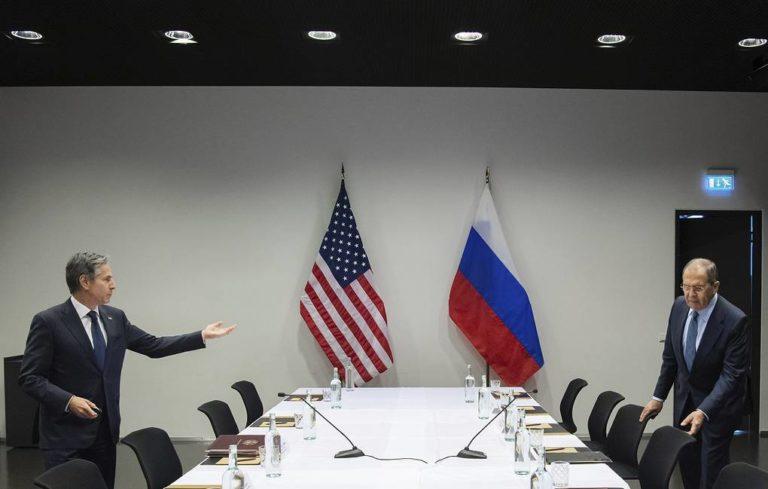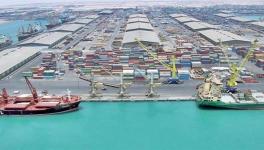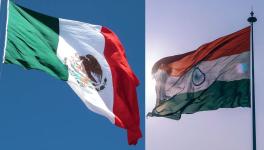Biden-Putin Summit is on

US Secretary of State Antony Blinken, left, met with Russian Foreign Minister Sergey Lavrov, right, at Reykjavik, Iceland, May 19, 2021
On March 17, on the eve of the first scheduled meeting in Alaska of senior Chinese and American diplomats since President took office, the United States sanctioned twenty-four Chinese officials for undermining Hong Kong’s democratic freedoms, including a member of the Communist Party’s Politburo, Wang Chen. In diplomatic terms, the timing of the action was pointed and clearly intentional.
Similarly, on May 19, just as Secretary of State Antony Blinken and his Russian counterpart Sergey Lavrov sat down for their first scheduled meeting in Iceland, the state department announced that sanctions will be imposed on contractors of the Nord Stream 2 gas pipeline project, but with the exception of the company Nord Stream 2 AG, or its CEO, Matthias Warnig, a German citizen with close ties to Russian President Vladimir Putin.
Prima facie, it may seem a mixed bag of sanctions and waivers, but the common thread here is the US’ lack of respect toward China and Russia. While the Biden Administration calculated that China would buckle down at Alaska — because that is China’s history under Western pressure — it apparently calculated that the Kremlin elites could be “incentivised” in Iceland.
At Alaska, Yang Jiechi, Chinese Politburo member and director of Central Foreign Affairs Commission of the CCP Central Committee, scattered the Biden Administration’s notions. Whereas, even before Lavrov got back to Moscow, Kremlin spokesman Dmitry Peskov described the state department’s sanctions waiver for Nord Stream 2 AG and its CEO Matthias Warnig as “positive signal.” This time around, the Biden Administration seems to have hit the bull’s eye.
The influential daily Izvestia since cited “sources familiar with the situation” to estimate that “practical work is expected to be launched on the agenda for the Putin-Biden summit.” The Iceland meeting was held in “a constructive manner”, the newspaper reports. The daily quoted a source that “Teams in both countries will now work on the content.”
The alacrity with which Moscow is responding needs some explanation. Basically, Washington has viewed Putin’s Russia in recent years as an increasingly oppressive autocracy run on a state-dominated, hydrocarbon-dependent, corrupt model. There was a time when the Western policy towards Russia was driven by hopes of improving the Russian behaviour. But the “strategic patience” was predicated on the confident expectation that Putin’s style of government cannot last much longer — and will be replaced by something much easier for the West to live with.
There is an impasse today, as the West’s efforts at isolating and sanctioning Russia are not getting anywhere. Meanwhile, what is far more significant, and pregnant with consequence for the future, has been the deepening and expansion of the Russia-China relationship.
As Ambassador Tony Brenton, a former British envoy and “Russia hand” assigned to Moscow, wrote in an essay last year, “The two current leaders (Putin and Xi Jinping) are each others’ most frequent interlocutors. Their militaries exercise together. They vote together in the UN. The language they use about their relationship avoids the word “alliance”, but only just.”
The Western analysts who were so far sceptical about the durability of the Sino-Russian partnership grudgingly concede that their “psywar” on the Moscow elite hasn’t worked — that Russians should be worried about becoming a mere economic satellite to their booming southern neighbour; that China might someday reabsorb the huge, empty, Russian Far East; that China has evil intentions toward Russia’s dominance in its Central Asian backyard, and so on.
Thus, no matter Russia’s perceived breaches of the international order, no matter its alleged predatory instincts, no matter its systematic debunking of western exceptionalism, the US attempts to bring Putin down are reaching nowhere. The Alexei Navalny affair amply testifies to this.
On the other hand, as Ambassador Brenton assessed even last year, “Russia and China increasingly see the antagonistic West as the core threat to their domestic political arrangements and overseas interests. Each provides the other with a strategically significant, economically useful, quasi-ally as they face that threat. Given current Western attitudes this bond seems bound to grow stronger. Or, to put it another way, in the upcoming global competition between China and the West the Russians, however European they may feel, will very probably fall on China’s side.”
In fact, Putin is speaking in a markedly assertive tone lately after Biden presidency began. He said most recently while addressing Russia’s political elites, “I hope that no one dares to cross the red line in respect to Russia, and we will determine where it is in each specific case. Those who organise any provocations threatening the core security interests of Russia will feel sorry for their deeds as never before… We really don’t want to burn the bridges. But some mistake our good intentions for indifference or weakness and intend to burn or even blow up those bridges themselves, Russia’s response will be asymmetrical, quick and tough.”
Hence the growing feeling in the West that it is time to rethink its Russia policy. Per this new narrative,
- The assertions of Russia’s “revanchism” are plainly exaggerated;
- NATO cannot possibly focus on Russia as an adversary when its attention ought to be increasingly on China;
- Russians should be sensitised that NATO is not necessarily a threat to them or their interests;
- Western intervention on Russia’s human rights and democratic performance is proving totally counterproductive — and in any case, Russia’s performance on this front will evolve only according to Russian rhythms, and not in response to Western pressure;
- It is only by building up honest and open links between businesses, students, academic institutions, professions and so on that the West can open the way for Russians to understand and appreciate Western values and way of life; and,
- The West must get off the sanctions treadmill and if necessary, trade off existing sanctions so that a positive agenda with Russia can be created for unwinding the current negative relationship with Russia.
Blinken appears to find the narrative attractive enough to try it out. It costs the US nothing anyway, and maybe, something good may come out of it if it loosens up the Russia-China bonding. Of course, making peace with Russia can have dangerous consequences, too. It is like letting a wild elephant into the tent. Russia may hold the potential to be a balancer between the US and China, but it may also choose to be a balancer between the US and some of its major European allies like Germany or France.
At Iceland, Blinken has given a “wish list” to Lavrov — North Korea, Iran, Afghanistan — and apparently sidestepped the explosive issue of Ukraine and the Crimea, leaving it, perhaps, to Biden and Putin. The US expectations are: Moscow should not side with Beijing over North Korea to undermine the US-led alliance system in the Far East; Moscow should give a free hand to the US to “tame” Iran; Moscow should not be a spoiler in Afghanistan and Central Asia vis-a-vis continued American security presence on the borders of Xinjiang.
However, the US is not really taking chances. It is only kicking the can down the road till Angela Merkel retires in September. Washington still has the nuclear option to torpedo Nord Stream 2 and derail Moscow’s gravy train to Berlin. After all, the Green’s chancellor candidate Annalena Baerbock is currently the front runner in the September election to the Bundestag. And she proposes “to increase the pressure on Russia” and has recommended in the Greens’ election manifesto that political support for the Nord Steam 2 gas pipeline should be withdrawn.
Get the latest reports & analysis with people's perspective on Protests, movements & deep analytical videos, discussions of the current affairs in your Telegram app. Subscribe to NewsClick's Telegram channel & get Real-Time updates on stories, as they get published on our website.
























